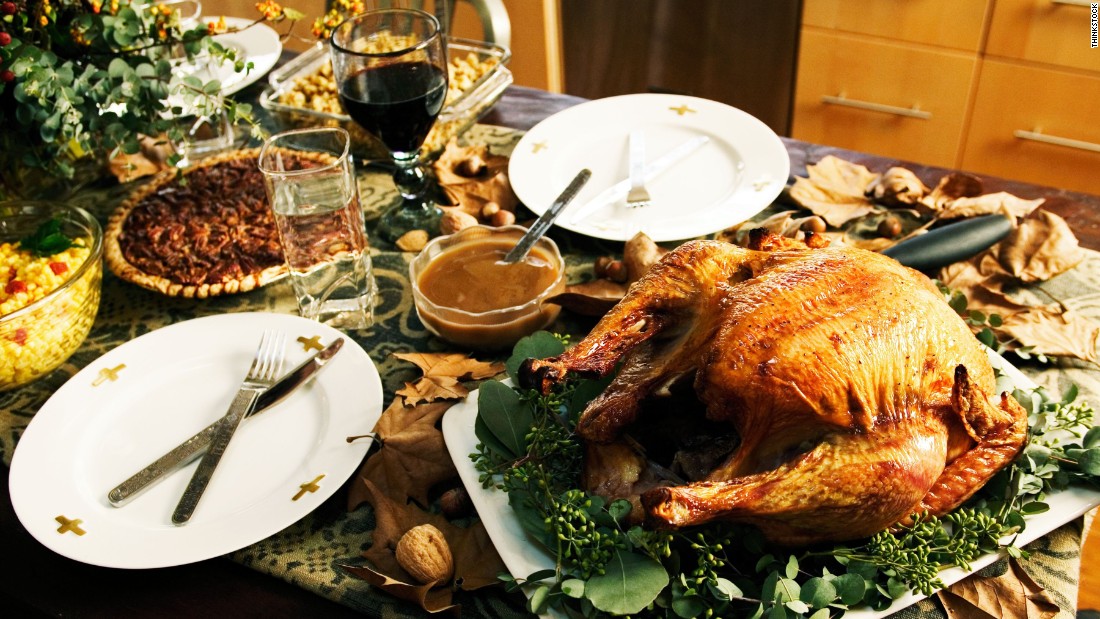
Don't worry your elastic-waisted britches about it. Daniel Post Senning, an etiquette expert from the Emily Post Institute, gave us some great pointers on how to handle the election aftermath with class. Here's how to keep your holiday companions from throttling each other:
1. Stick to nonthreatening conversations
If you really want to ensure a PG-rated family gathering, stick to what Senning calls "Tier 1" topics: Pop culture, sports and shared experiences like the weather, the food, family matters or even the holidays themselves.
"Tier 2" conversations, on the other hand, are things like politics, religion and sex, and they tend to create deeper divisions. "Those are important discussions to have," Senning says. "But they are controversial and require a level of discretion, care and tact to navigate. You have to think about your audience and the potential impact of those discussions."
In other words, you may think the latest abortion debates are fascinating. That doesn't mean it's the first thing you should mention after grace.
2. Don't take the bait
Obviously at some point, one of your dinner partners may launch a unilateral political offensive. Don't feel like you have to engage. "[Goading] is not a license to respond in kind," Senning says. "It's never an obligation that you provide a counter argument or that you have to share what you think."
Remember, you're the master of your own emotions. Is it worth spoiling the evening's Honey Baked Ham halo just so you can give your belligerent cousin the what-for? No. Smile and take one for the team. "You're never going to help the situation, and it will probably just escalate it," Senning says.
3. Admit when you've put your foot in your mouth
Nightmare scenario: You think your whole table is of one political or religious mind, so you spew a hot take they can all enjoy. Surprise! You're met with icy silence.
Don't fall on your butter knife just yet. Senning says there's a graceful way to get out of this common faux pas. "Whenever you find yourself in that situation, showing a return to self-awareness is a good way to regain trust," Senning says. 'Fess up and acknowledge that it's just your opinion, and that others may not share it. In fact, it could be the start of a new understanding. "Moments like that are opportunities to build bridges," Senning says.
4. Don't be afraid to right the ship
If you see the conversation starting to tip into potentially hazardous territory, don't be afraid to take the wheel. "Try to guide the conversation back into safer territory," Senning says. "That's usually a host's prerogative, but anybody can do it, and any talented conversationalist will recognize safe territory." In fact, chances are you won't be the only one trying to save the atmosphere. When you interject with a compliment about the food or a riff on the perils of Black Friday, you'll be giving other people an opportunity to chime in and get things back on track.
5. If you must bring up a tough subject, do so with compassion
"Whatever, CNN," you may be thinking. "My family/chosen holiday gathering absolutely THRIVES on sparkling, diverse topical conversation." Neato, friend. That's really great. But if you're going to go there, be prepared for what you might find. "If you are going to talk about these things, you have to be willing to listen to someone that has a different opinion than you do," Senning says. "Showing some awareness of that reality communicates a certain grace and awareness and consideration of others."
Bagikan Berita Ini















0 Response to "How to talk politics at your family holiday meal this year"
Post a Comment